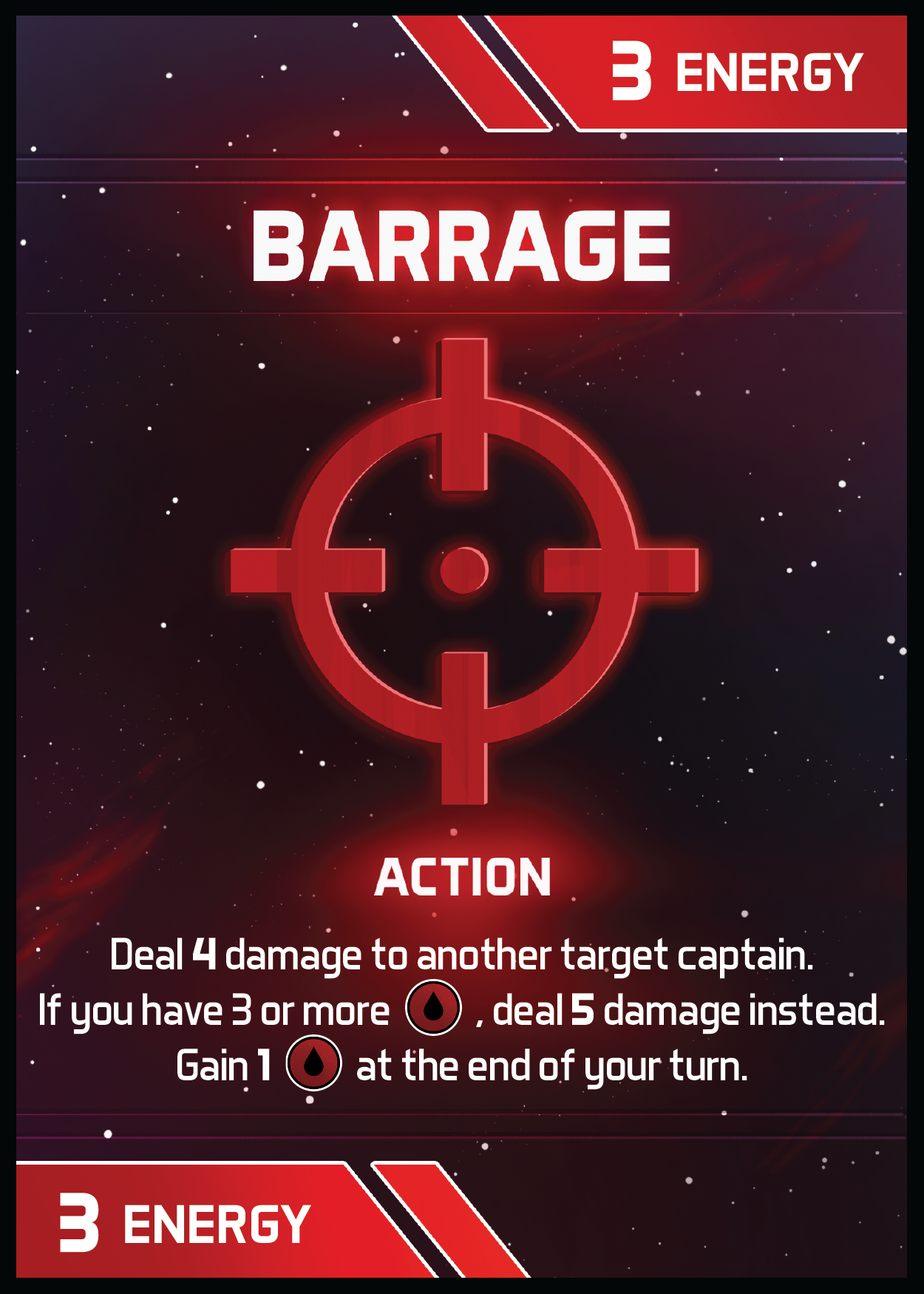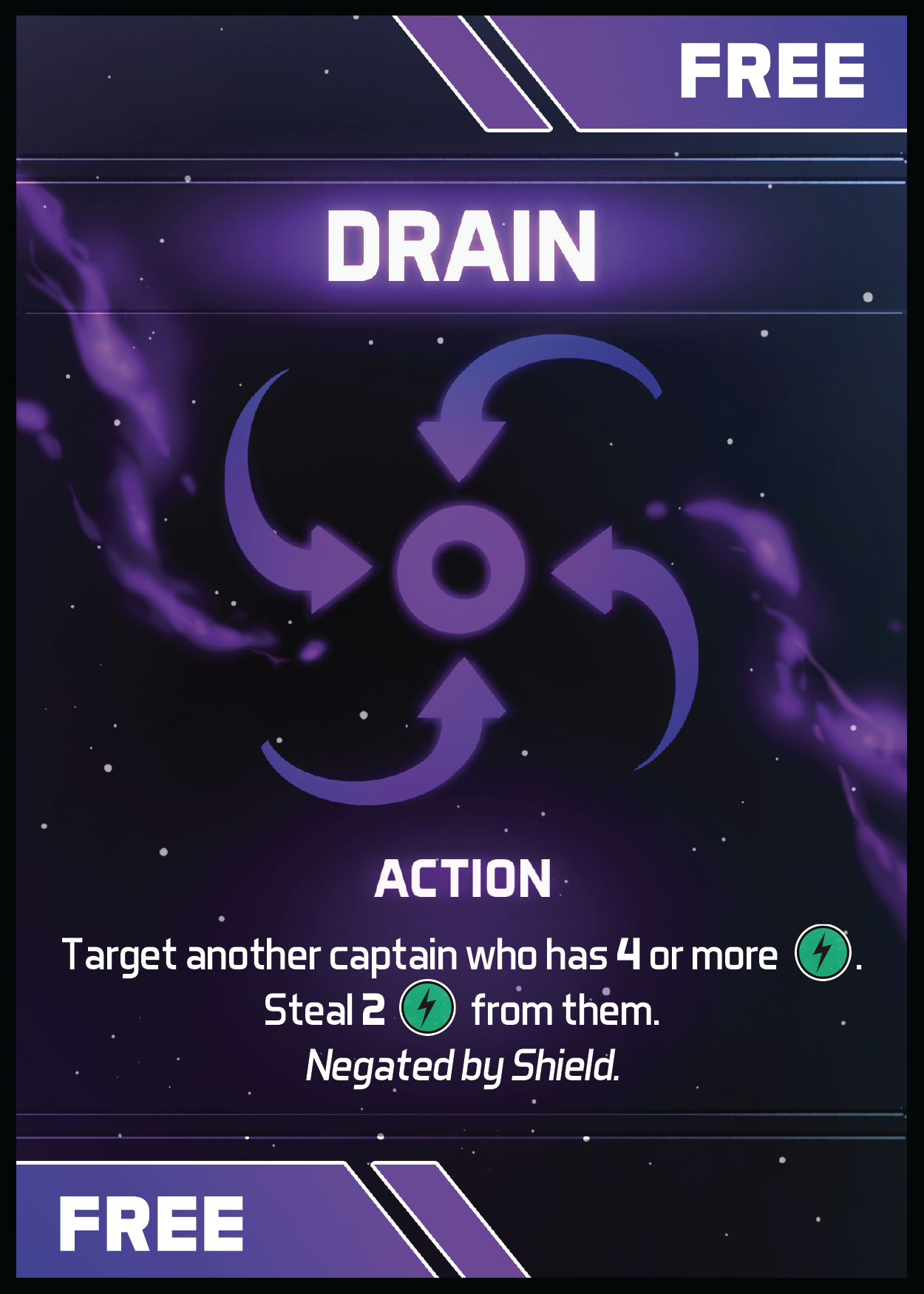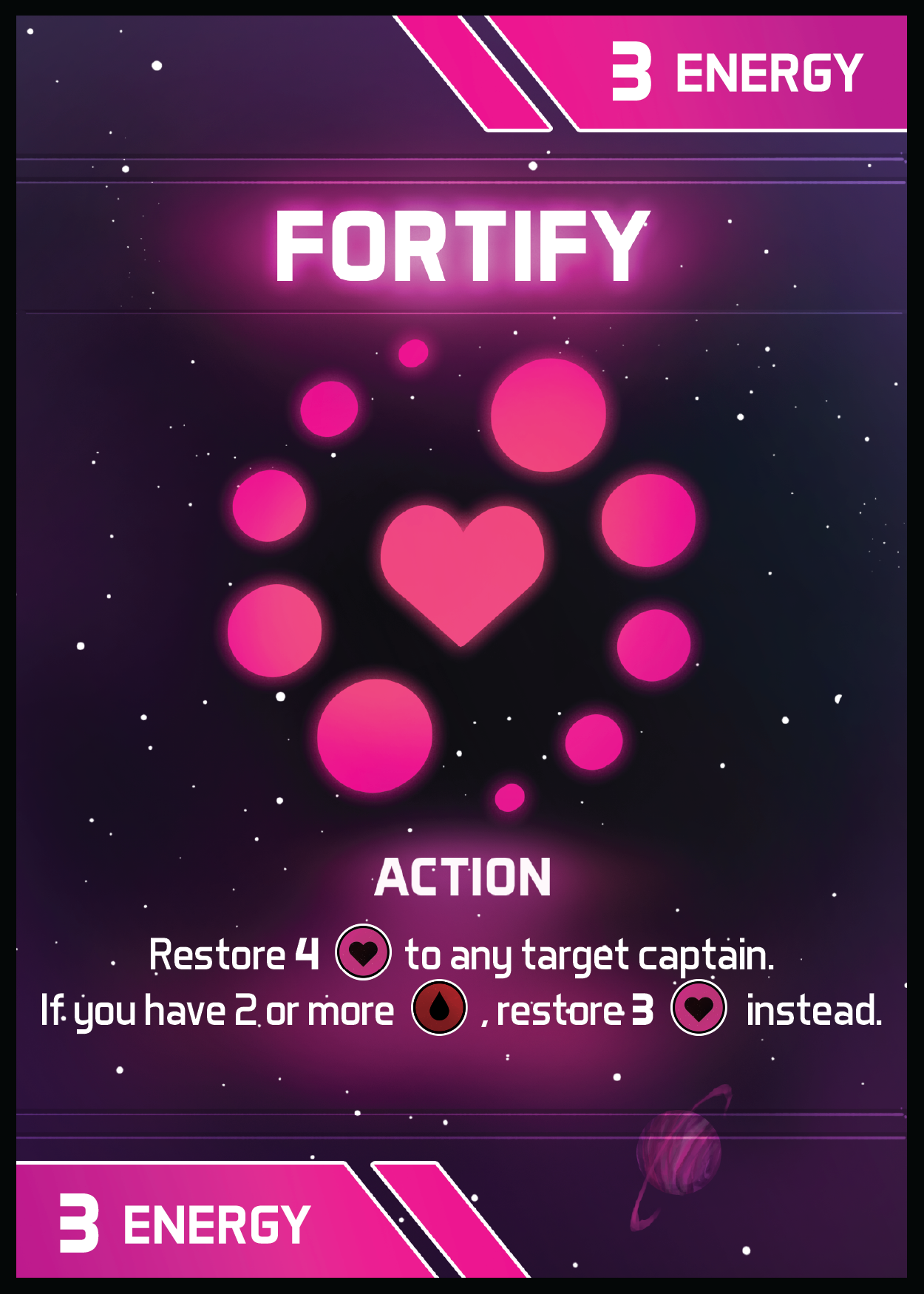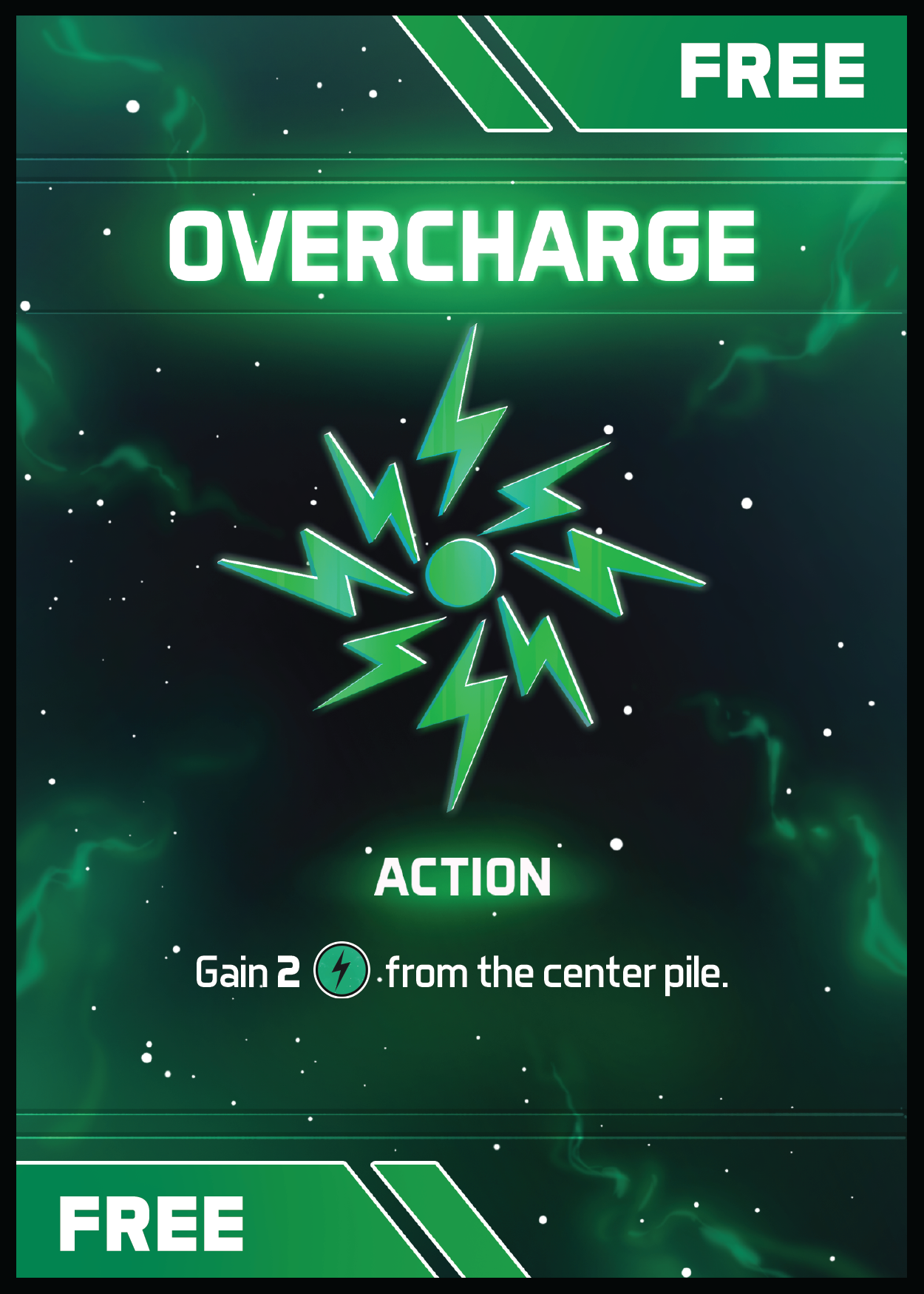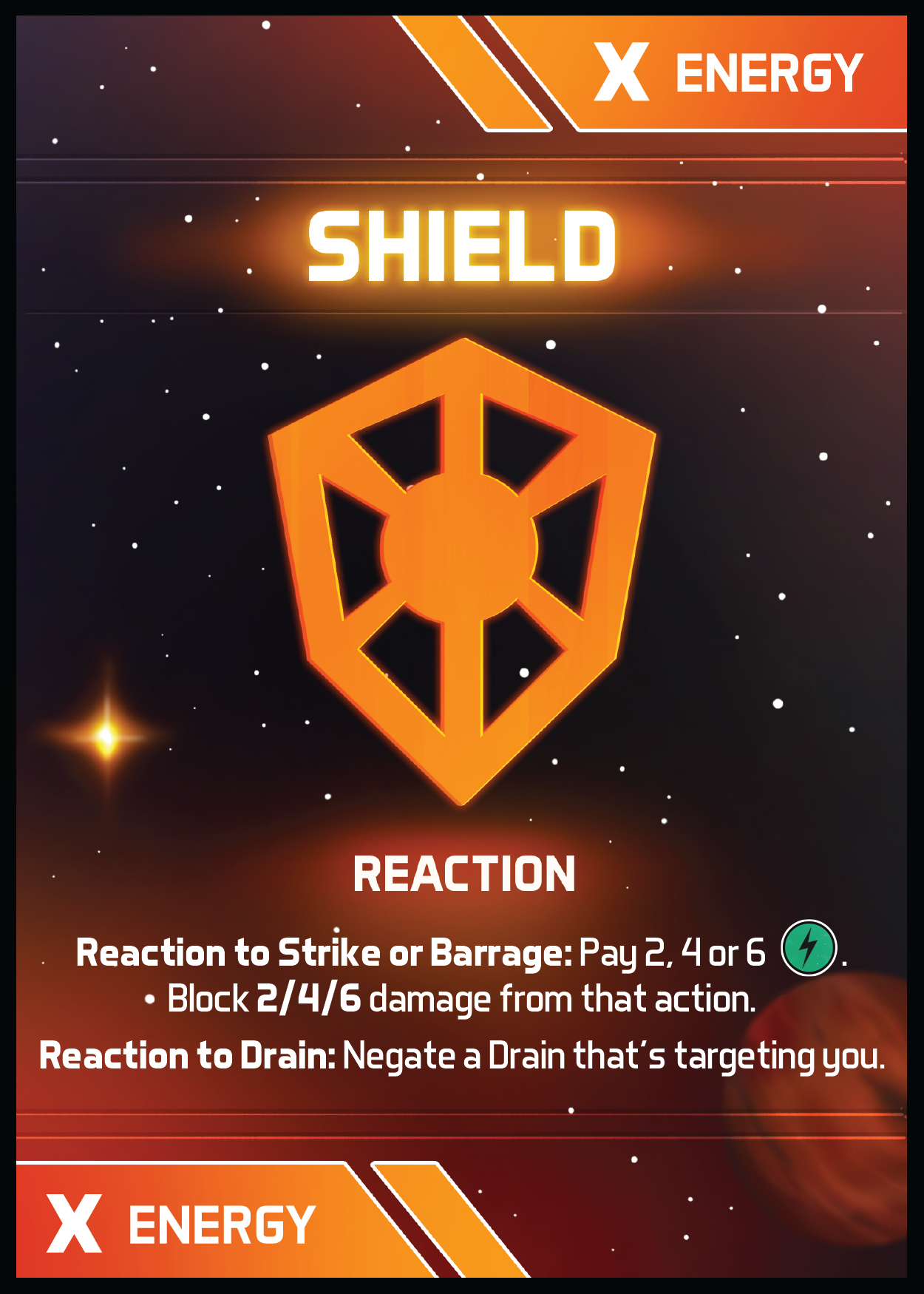Welcome back, Captain!
By now, you should have a strong handle on the basics of Captain’s Gambit. You should know who the captains are and have mastered my tips for new players. So how can you take your skill and strategy to the next level? Well, I’ve got you covered with five more tips, this time focused on some more advanced concepts.
Note: Just like last time, these are my own personal tips, and the other designers may not agree with all of them. But trust me, I’m confident these tips will help you improve your win rate.
Tip #1: Know Your Meta
Now that you understand the captains in the game, it’s time to understand the players at your table. Every table is different, so you’ll need to learn the common strategies that the other players tend to use. Your table might be particularly truthful, or they might lie all the time. They could be slow and passive, or they might be quick to kill each other. Whatever type of table you have, there’s always a way to take advantage of it. Here are some examples of how you could do that:
If the table tends to be truthful, don’t call bluffs unless you’re absolutely certain that they are lying. Additionally, you can probably lie more often since the other players will assume that you’re telling the truth.
If your table is very aggressive, make sure you’re not the first person at the table to take damage. Instead, try to get someone else damaged so that the table will focus on them instead of you.
If your table tends to be slow and passive, you can try one of two tactics. You can either try to rush your objective (i.e. immediately kill your marked target), or you can try to quietly achieve your objective (i.e. gather energy undetected).
It’s important to realize that your table’s meta will constantly evolve. If everyone keeps getting caught in their lies, they’ll eventually become more truthful. Or if aggressiveness tends to get you killed, your games will start to slow down. Keep an eye out for when these shifts start to happen and make sure to adjust your strategy accordingly.
Tip #2: Master the Mulligan
At the beginning of the game, players are given a one-time opportunity to exchange their permits in the hopes of getting something better. This mulligan is extremely important because having a good starting hand can set you up for success. Here are some tips about what permits you should be looking for based on what kind of captain you are playing as:
If you’re playing as an Ascender, you mostly want to get a Shield/Fortify and a Drain/Overcharge. These will help you set up for (and hopefully survive) your reveal.
If you’re playing as a Devotee, you likely want a Fortify/Shield and a Barrage. This combination will help you protect your companion while subduing any threats.
If you’re playing as an Assassin, considering going for a Barrage and a Shield. This will let you both take down your target while preventing others from sniping your mark.
If you’re playing as a Dominator, you have a lot of flexibility for what to go for. You definitely want a Barrage, but for your second permit you can either take Shield/Fortify to keep yourself alive, or an Overcharge to keep up your resources.
If you’re playing as a Manipulator, I recommend going for Barrage and Shield/Drain. This combination should set you up for maximum disruption.
You might have noticed that I haven’t mentioned the Network permit yet, but here’s why: you should always keep Network in your opening hand. At the end of the day, the odds of you getting the perfect permits for your strategy is relatively low, even if you full mulligan both of your permits. But Network gives you the ability to keep digging for the permits you want throughout the game. It’s like getting the ability to do multiple mulligans!
Let’s say you’re playing as Hamlet and your initial hand is a Fortify and a Network. Based on my advice, you should keep the Network but throw away the Fortify in hopes of getting a Barrage or Shield. By contrast, if you are playing as Cordelia and start with a Drain and an Overcharge, you should throw both of them back in hopes of getting something better.
Tip #3: Learn the Odds
When it comes to calling bluffs, sometimes it can feel like you don’t know enough to call someone out. But in actuality, you likely know quite a lot when you think about it:
There is a different number of permits in the game based on your player count. There are 2x copies of each permit in a 4-player game, 3x copies in 5/6-player games, and 4x copies in 7/8-player games.
You know what permits you have in hand, which means you know 2 permits that other players are less likely to have. You also know what permits you shuffled into the deck each time you Message or Network.
Whenever a player dies, their permits remain face-up on the table for the rest of the game (i.e. they aren’t shuffled back into the deck). This means you can factor those cards into your calculations. For example, if someone dies in an 8-player game with an Overcharge in their hand, that means there are only 3 Overcharges left in the game.
Lastly, whenever a player gets wrongly called out, they reveal their permit and shuffle in back into the deck. While that player may have a slight chance to redraw it again, you now know it’s a copy of that permit that other players do not have.
Would you call it even if you were at 7 health?
Let’s put these together into an example. Let’s say you’re in an 8-player game and someone tries to Barrage you. Initially, it might seem like they have a 4/24 chance of having a Barrage. But, let’s say you currently have a Barrage in your hand, another player died last round with a Barrage in their hand, and someone shuffled a Barrage into the deck a few rounds ago. Now the odds that they have a Barrage are actually pretty low. Does this mean you should call them out? In most cases, probably. While there is the very deadly risk that you are wrong, focusing on the odds rather than the outcomes will improve your win rate in the long run (even if this specific time it doesn’t pan out).
Tip #4: Sow Doubt
As I already mentioned in my beginner tips, alliances are extremely powerful in Captain’s Gambit. While that’s great if you’re a part of one, sometimes you might find out that you’re on the outside of a formidable cohort of captains. You could try to fight them anyways, but that can be very difficult especially if the alliance has 3 or more players in it. So, what do you do? My advice is to try to turn them against on each other.
Most alliances in Captain’s Gambit tend to include some combination of Iago, Rosalind, Imogen, King Lear, Cordelia, Prospero, and Lady Macbeth. The thing about those captains is that there are quite a few deadly alternatives that can easily hide among them. For example, a player hoarding blood may be claiming to be Iago but is secretly Titus. It’s very common for Brutus to pretend to be Cordelia in hopes of sneaking in a win. And both Romeo & Juliet and Richard could be exploiting the alliance to pick off players at the table.
If you find yourself on the wrong side of an alliance, use your social skills. Make its members look suspicious, lie about who you are, and claim that some of them are lying about their identities. It won’t always work, but when it does, it’s satisfying to watch them turn on each other.
Tip #5: Chain Deaths
Let’s say you’re playing as an Assassin. On the surface, it might seem like the only way to kill your target is to attack them or call their bluffs. And while that can be an effective way to do it, that strategy tends to draw a lot of attention onto yourself. However, there is another way you can take them out. Some captains in the game have specific lose conditions in addition to their win conditions. For example:
Rosalind loses if 2 or more captains die.
Cordelia loses if their target dies/loses.
Both Romeo & Juliet lose if their partner is killed.
Hamlet, Brutus, and Tybalt & Mercutio all lose if their target is killed by someone else.
If you suspect that your target is one of those captains, instead of trying to kill them you can try to make them lose instead. While this tactic is tricky to pull off, it can sometimes be easier than going for them directly. This strategy is also very effective for Dominators or Manipulators, as it can help them take out multiple threats at once.



